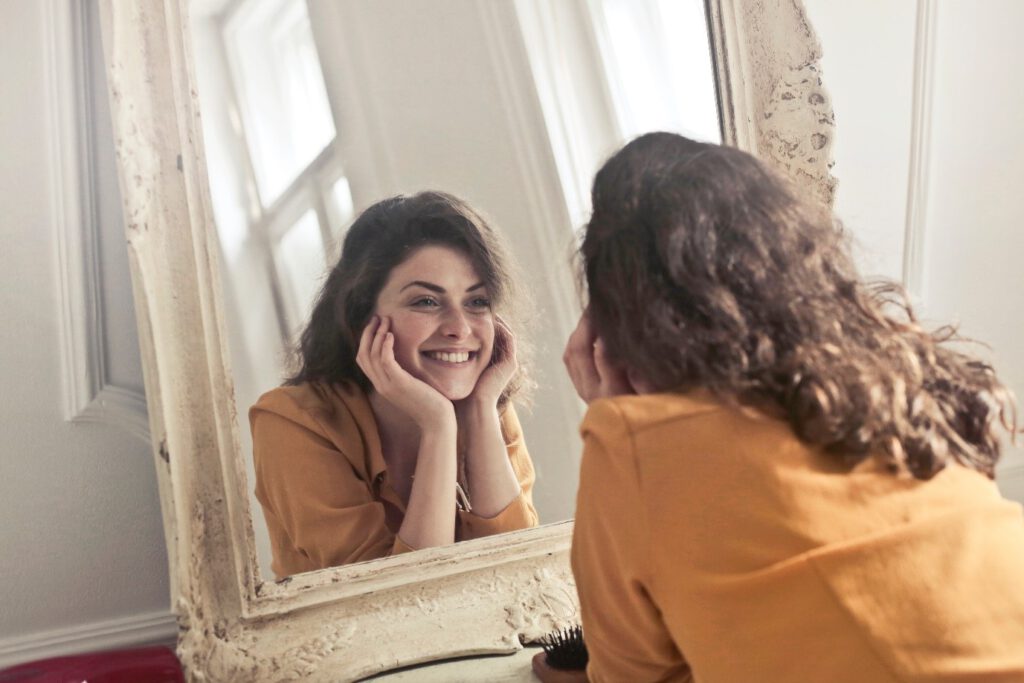What studying adolescents’ self-concept taught me about myself

I have always had a fascination for how children and adolescents learn and develop. However, for a long time I was uncertain how to tap into this fascination: would a job teaching children in primary or high school fit me best? Or should I aim to become a child psychologist, or something else entirely? I wasn’t sure, but I started by studying child psychology, only to find out after my bachelor’s that it wasn’t the best fit for me. I craved for some more in-depth knowledge, a challenge, abetter grasp on where children’s behavior comes from. That is how I ended up doing a PhD in developmental neuroscience.
Many adolescents are struggling, like I was, to find out who they are and where they want to go in life. So perhaps it is not so strange that they are sometimes described as being preoccupied with themselves or being egocentric. In the period between puberty and early adulthood, a lot is changing in the lives of young people: how do they navigate this? How do children grow up to get to know themselves, their own strengths, weaknesses and interests? During my PhD I studied how young people think about and evaluate themselves and how this changes between puberty and early adulthood.
To do this, I conducted several studies in which adolescents were asked to evaluate their traits: to what extent did they think that various positive and negative traits fit them (i.e. direct self-evaluations; ‘I am good-looking’)? They additionally reported how they thought their peers would judge them on these traits (i.e. reflected self-evaluations; ‘My peers think about me that I’m smart’). In addition to these MRI tasks, I used questionnaires, experimental tasks, and behavioral observations to be able to fully grasp self-concept during adolescence. In the first part of my PhD I focused on general self-concept development in typically developing adolescents, whereas in the second part of my PhD I focused on relationships of self with traits of autism and internalizing feelings.
What I learned about adolescents’ self-concept
These studies showed that adolescents are temporarily less positive about themselves in mid-adolescence, especially regarding their school-related traits (such as being smart or being motivated). Together with increasing activation in a brain region which processes self-relevance or significance of stimuli into late adolescence, this may suggest that self-concept is temporarily more vulnerable at this stage. This period of self-doubt may be adaptive and help adolescents to learn more about their traits, skills and interests, which can aid them to shape the goal for their future.
What we have also learned from these studies is that thinking about yourself, and thinking about how others would judge you, are very much alike both in behavioral ratings as in underlying brain activation. This indicates that self-concept is a social construct that develops in interaction with others.
After having learned this, I wondered what self-concept development would look like in adolescents who usually have more trouble with social interactions, such as adolescents with autism spectrum disorder (ASD). Therefore, in the second part of my PhD, I studied how positive adolescents with ASD are about themselves, and how this is related to feelings of depression and anxiety. It appears that adolescents with autism, or with more autistic traits, are more vulnerable to have lower self-esteem, and to evaluate their social traits and physical appearance less positively compared to adolescents without autism. Additionally, low self-esteem in adolescents with autism, are related to feelings of anxiety and depression, which highlights the importance of feeling good about yourself.
What I learned about myself
Fortunately, our self-concept does not stop developing after adolescence. During the time that I studied self-concept in adolescents, I also learned a lot about myself: about my strengths and weaknesses as a researcher, and about the kind of scientist I want to be. For example, I can apply different types of research methods, and enjoy writing, but explaining my research findings in front of a camera is much more difficult for me. I have learned that the scientist I would most like to be is one who runs several different projects simultaneously, combining fundamental research with actively seeking to connect science to society, and collaborating in a team of other enthusiastic scientists. I am incredibly grateful that I have had the chance to work in such an inspiring team as the SYNC lab, and to gain experience with the many tasks that scientists have, such as conducting, analyzing, and writing up studies, teaching, outreach, and using open science and citizen science methods. Now that I got to know my main interests, strengths and weaknesses, I am looking forward to continuing to work in the SYNC lab at the Erasmus University Rotterdam and work to be the best scientist I can be.
Contact
Erasmus University Rotterdam
Mandeville Building T13
Burgemeester Oudlaan 50
3062 PA Rotterdam, the Netherlands

